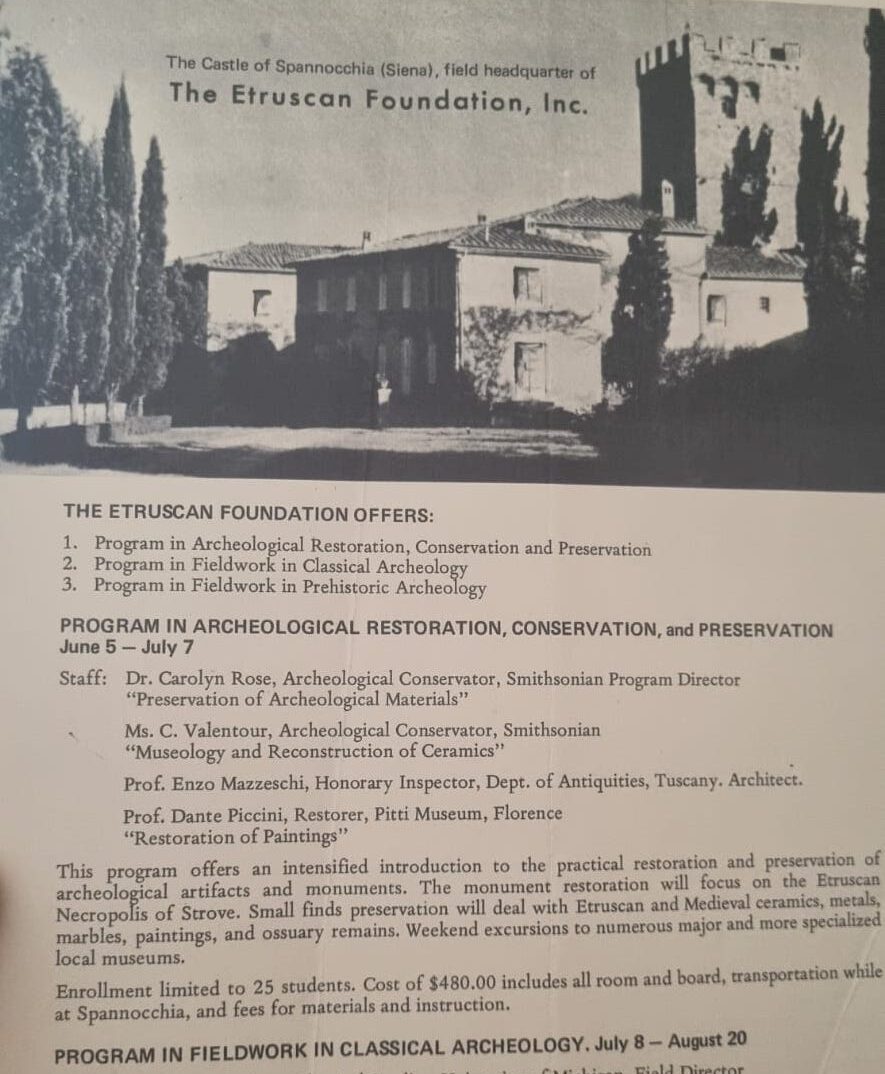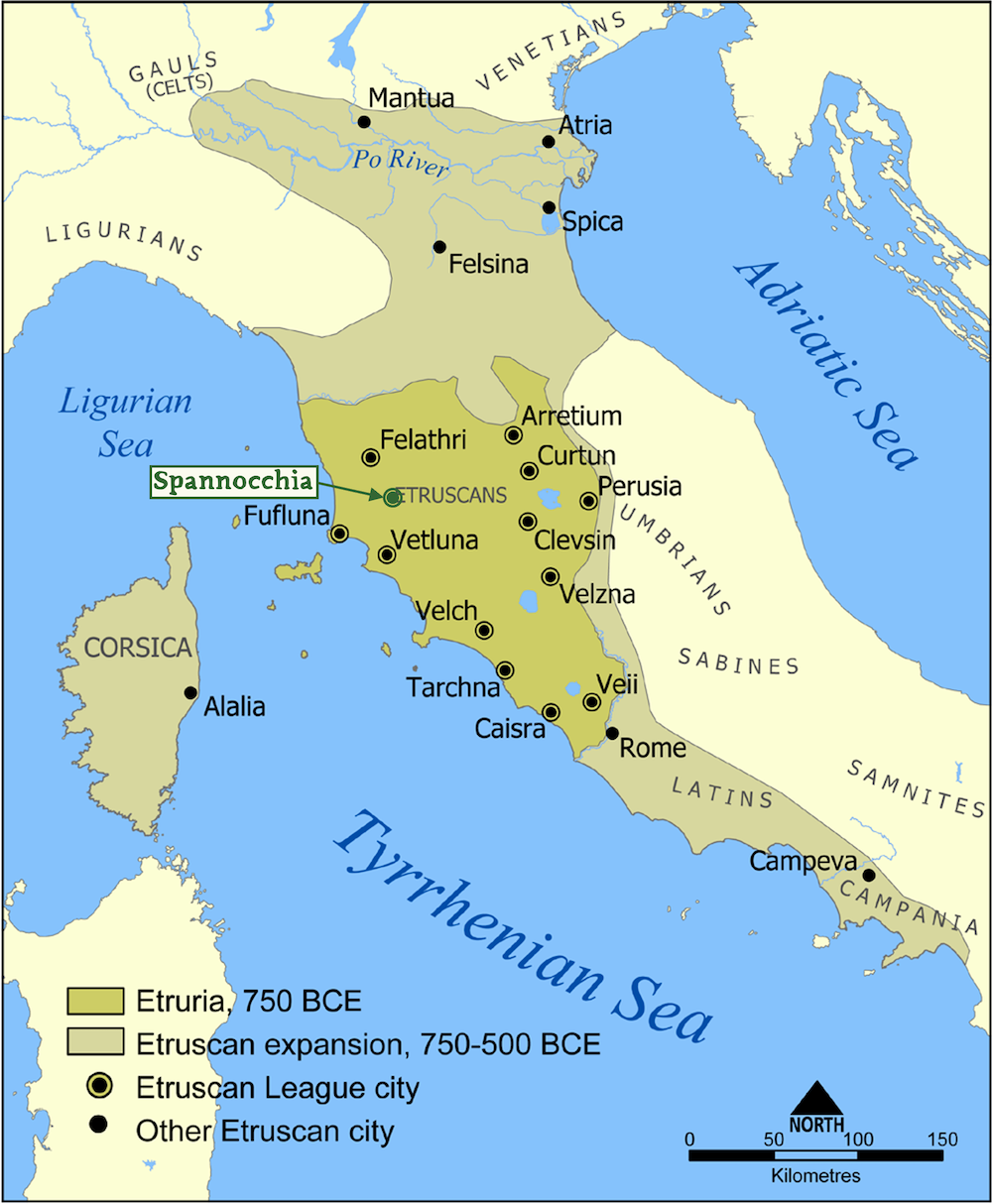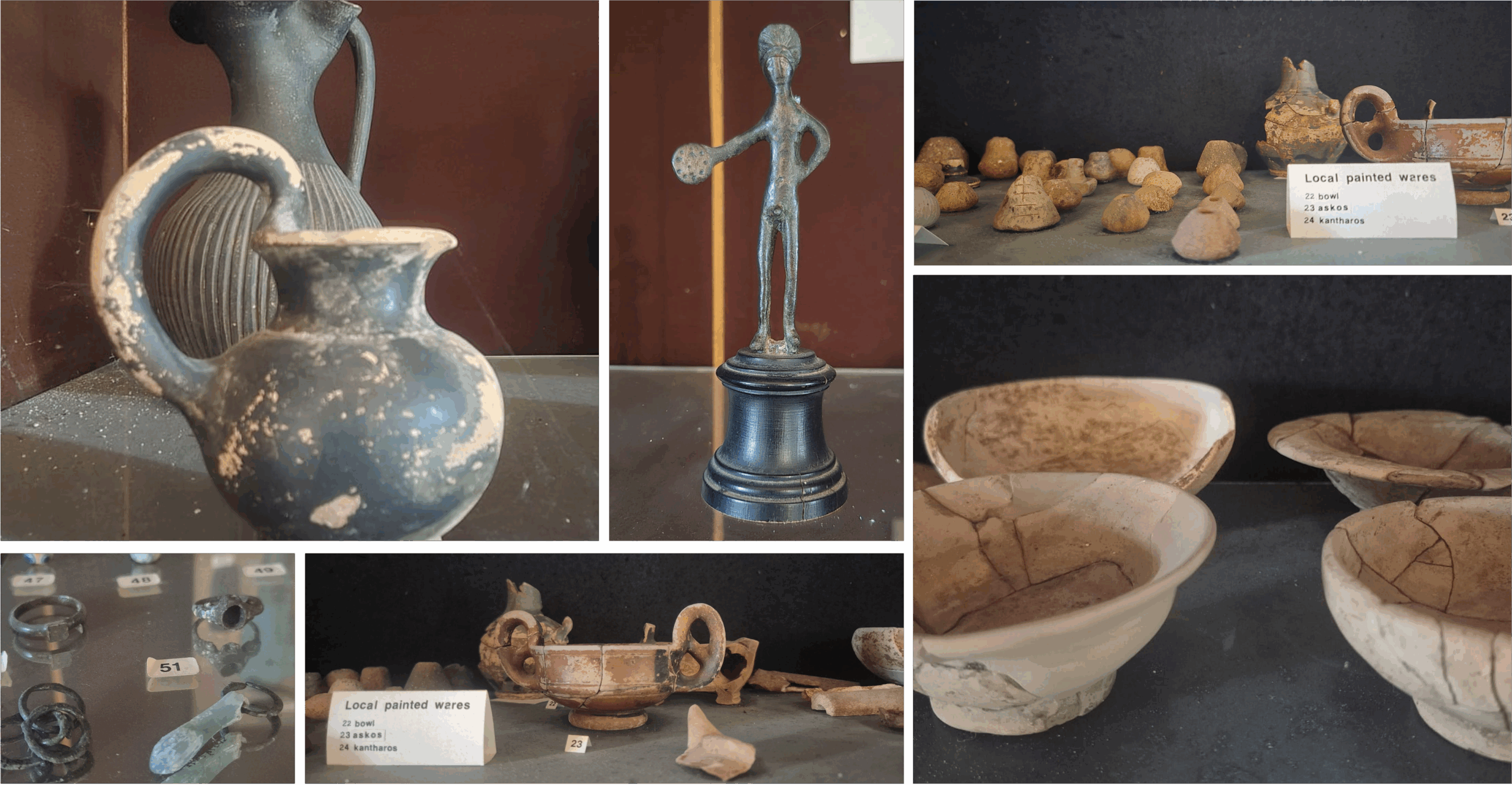SEPTEMBER 2025 THEME: ETRUSCAN HISTORY
We may be celebrating 100 and 800 years of Spannocchia history, but the history of the region and Spannocchia’s connection to the people who came well before the year 1225 is also a significant piece of our story.
The Etruscans, a pre-Roman civilization that prospered in Central Italy from the 8th through 3rd centuries BCE, are considered to be the first great Italian civilization. Its successes and many elements of its culture had a major influence on the Romans and subsequent Mediterranean cultures. Written records from this time unfortunately do not still exist, but archeologists continue to unearth and study Etruscan artifacts to this day, providing insight into their lives.
Spannocchia’s modern-day connection to the Etruscans is rooted in Nando Cinelli’s fascination with the ancient culture, and desire to learn more about them. In the 1950s, Etruscan archeology was limited, so–with encouragement from his wife, Sarah–Nando created the American nonprofit Etruscan Foundation in 1958 to sponsor archeology at Etruscan sites in Tuscany. The Foundation was granted permission to dig at an important Etruscan site, Vetulonia, which hadn’t been examined for many decades. In the summer of 1959, they hired a professor from the University of Florence to be the director of the excavation, as well as local workmen, masons, and farm workers to do the physical work. And it was successful! They located and opened an Etruscan tomb that had been sealed for well over 2,000 years and held some incredible, instructive finds.
After a couple more summers of this, the Etruscan Foundation decided to bring some American scholars over to work with the Italians. In 1964, they were approved to have an archeology professor from Bryn Mawr College lead a dig just outside of Rosia, accompanied by American archeology students who did much of the physical work as part of a unique hands-on educational experience. The Americans, of course, needed a place to stay, and there was space at Spannocchia since this same period saw the decline of the mezzadria system and therefore the departure of Italian farm families who previously lived on the property. This is how Spannocchia got our start hosting educational program groups on-site!
The Etruscan Foundation is still in existence, but since the establishment of Friends of Spannocchia (originally the Spannocchia Foundation) in 2002, it has functioned independently of Spannocchia. Still, we have a collection of Etruscan artifacts in Spannocchia’s Museo building, which is right off the main courtyard. Most of the pieces we have were not actually found at Spannocchia, but at nearby dig sites, and include weaving accessories like loom weights as well as everyday items like utensils. The next time you are at Spannocchia, please take a moment to explore the Museo and these fascinating archeological treasures!
*The Etruscan Foundation is dedicated to the study and understanding of the cultural and material history and heritage of the Etruscans, their neighbors and ancestors. Read more about their work on their website.
*More information about the history and significance of the Etruscan civilization can be found at World History Encyclopedia.



